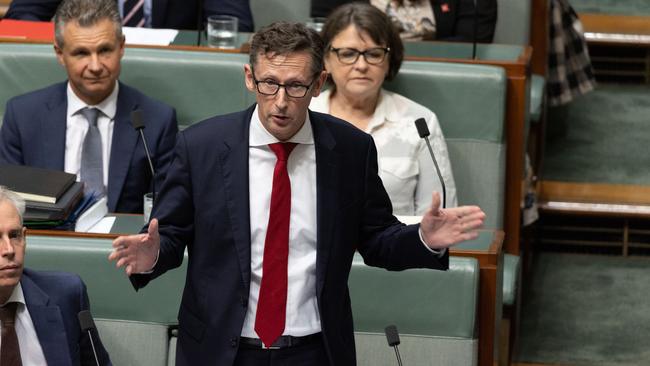Government moves on financial advice reforms
The Albanese government has cherry-picked a batch of recommendations that will concentrate on simplifying the day-to-day operations of financial advisers.

The Albanese government has decided to move ahead and legislate roughly half of the recommendations proposed in the recent Quality of Advice Review led by lawyer Michelle Levy.
Sidestepping many of the more controversial recommendations, Financial Services Minister Stephen Jones has cherry-picked a batch of changes that will concentrate on simplifying the day-to-day operations of financial advisers through cutting red tape.
With financial advice now estimated to cost around $3500 per annum, the advice industry had lobbied hard to reduce a range of sometimes overlapping regulations that followed in the wake of the Hayne royal commission of 2017.
The first batch of draft legislation will be open for consultation until December 6, with the government aiming to “announce its final position on the outstanding recommendations before the end of the year, with further legislation to be released in 2024”.
Though the government has looked at the majority of Ms Levy’s recommendations, the move to extract only a handful of pragmatic changes for initial legislation will lead to concerns the rest of the reforms may never see the light of day. Ms Levy has openly pushed for all her recommendations to be taken up – even resorting to an “open letter” to government in May last year.
However, Mr Jones indicated he was not willing to do a complete overhaul of financial advice in one phase. When he announced the package he suggested: “Most Australians don’t have complex financial affairs that requires a comprehensive advice plan from an adviser. They just want to know how to make their super work for them.”
Ms Levy’s original recommendations had several ambitious concepts including allowing large super funds and banks to offer simple and scalable advice. This would exempt big institutions from the “‘best interests” duty.
In fact, the first batch of legislation contained even less than many inside the industry had been expecting – a move to scrap the notoriously expensive Statements of Advice that must be provided by advisers to new clients is missing from the announced legislation.
Similarly, a move to demand consent from consumers who are being classified as wholesale – or “sophisticated” – investors is missing from the legislation
The recommendations that have got through government are: Clarifying the legal basis for super trustees paying a member’s financial advice fees from their superannuation account, and associated tax consequences; consolidating different ongoing fee consent documents into one simplified document; allowing more flexibility in how financial services guides are provided; clarifying that monetary or non-monetary benefits given by a client are not conflicted remuneration along with the removal of consequential exceptions.
It also includes recommendations for strengthening transparency and protections for consumers by introducing written consent requirements for consumers before they purchase an insurance product that will result in a commission payment.
Sarah Abood, chief of the Financial Advice Association of Australia, welcomed the new legislation, adding that she hoped ”there will be more coming down the line as soon as possible”.
The combination of tougher educational standards for advisers along with rising costs of receiving advice has prompted an exodus from the sector:
There are now only around 16,000 professionals in financial advice, down from 30,000 a few years ago.
“The Albanese government is committed to ensuring Australians have access to high quality and affordable financial advice,” Mr Jones said.
“The government has engaged in deep consultation with industry and consumer representatives on how to expand the availability and affordability of retirement income advice, and the legislative changes needed to support this.”
Mr Jones has previously said the government felt it was urgent to fix the current problem of the decline in financial advisers in Australia with increasing regulations leading to an exodus of some 10,000 advisers from the sector since 2019.







To join the conversation, please log in. Don't have an account? Register
Join the conversation, you are commenting as Logout